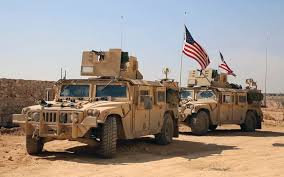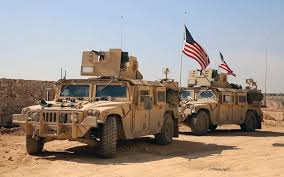The Syrian military strategy of President Assad is well-known. It is explained here, and here. This strategy has succeeded. The Assad coalition of forces is defeating his opponents. They are continuing steadily to clear remaining opposition forces from Syria.
Raqqa has not been central to Assad. Neither has Manjib. They remain to be “cleaned up”, but they were not of strategic importance to Assad and still aren’t.
Trump’s introduction of US boots on the ground adds a new layer of conflicting territorial objectives and conflicting political control over certain contested cities and villages. He has gotten the US directly involved or more directly involved in another war than Obama had already done. Yet more involvement or escalation is now inevitable; the US has already bolstered its force in Kuwait.
The US desire for territorial and political control in this portion of Syria remains to be seen. It is one thing to shoot howitzers from a distance. It is another thing to move troops into contested areas and become involved in the administration of cities and villages. It is another thing to be politically dealing with half a dozen and more different groups: Kurds and Kurd factions, Turks, Arab-supported factions, Russians, Iranians, Lebanese, Syrians, and Muslim factions.
If Trump had stayed out of Syria or withdrawn existing contingents of US forces from Syria, this would not have satisfied his own anti-Iran policy, the anti-Russia elements of the deep state, the beneficiaries of military spending and war, Saudi Arabia, the Gulf states, and Israel.
Reprinted with permission from LewRockwell.com.



